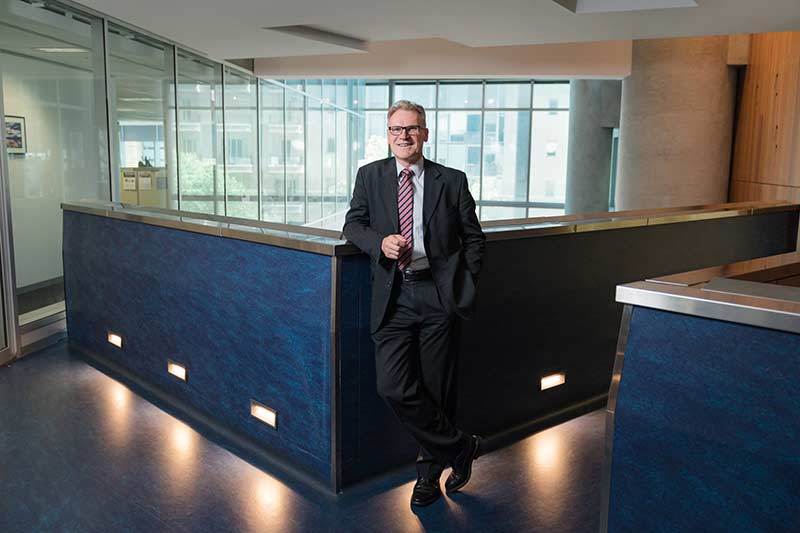
One of the key ways of delivering better citizen services by government
is through the sharing of information and data, which is mostly owned by the
government departments and agencies. However, a new generation of systems is
required to share information and provide better services for citizens,
something that Dr. Steve Hodgkinson alludes to in his interview with OpenGov
Asia.
We spent some time with Dr. Hodgkinson, CIO, Victorian Department of Health
& Services (DHHS), as he shares on the challenges of information sharing
within government, increasing the pace of modernisation of business systems
within his department as well as benefits of the Platform+Agile approach.
Accelerating the pace of modernising
business systems
When asked about the ongoing developments and projects at the DHHS, Dr.
Hodgkinson explained that his main area of focus is improving the productivity
of the application development process to deliver new business systems and replace
older and outdated systems in a faster manner.
“We have a large number of initiatives which are progressively working around
the most urgent new systems and upgrades. We are building our skills, methods
and capabilities in order to regain confidence in our capacity to deliver new
systems more quickly. We know we have some big projects ahead of us to replace
or upgrade our core client and case management applications, so we are ‘getting
fit’ for the challenge.”
Dr. Hodgkinson added that the historical approach to ICT in
government has had too many project failures and is just not productive enough.
For the time, effort and money expended the old approach just didn’t produce
enough new business systems. “We need a better way.”
“The essence of our new approach, which we call Platform+Agile, is
to buy and then reuse strategic platforms, preferably public cloud services, to
develop new business systems – rather than the more traditional
application-by-application outsourcing approach. Start with a proven, trusted,
platform and develop the new system via a series of agile iterations. Use the
platform for multiple applications. Because the platform already exists it is
possible to start quickly and deliver a minimum viable product which is then
refined based on user feedback.”
Challenges to information sharing
across government departments and agencies
Victoria is in the midst of a major change in the logic of information sharing
in the social services sector. Dr. Hodgkinson said that “legislation, system
constraints and work practices had all compounded to created barriers to
information sharing. The primary focus over the last decade or so had been to
preserve and protect the privacy and information of the individual. The
agencies operated in program and legislative silos that made it very difficult
for staff to share information.”
A Royal
Commission into Family Violence,
which delivered its report in 2016, created a major turning point. The
Commission recommended that the government look at more effective ways to share
information, and coordinate services, across different agencies and departments
to protect the safety of clients. The recommendations have created a major
program of investment in legislative changes, the creation of a new agency
called Family Safety Victoria and new systems to support better information
sharing.
Dr Hodgkinson explains, “Improving information sharing is a
complex challenge, but new generation of business systems is essential. New
systems are not the total solution, but can create a catalyst for change
because they provide the tools to find and share information as well as
codifying new business processes and new compliance and reporting controls. The
breadth of the changes, however, means that it is hard to specify the systems
using a traditional requirements definition, waterfall approach. The problem is
complex and fast moving.”
This is where the Platform+Agile approach is a game changer. Dr.
Hodgkinson says, “A key benefit of the Platform+Agile approach for DHHS is
because seeing is believing. Theoretical discussions about how to improve
information sharing can go around and around in circles for too long – creating
endless workshops, documents, presentations, plans etc. The problem is complex,
so we needed a way to breakthrough and create some tangible progress. The most
important thing we could do was actually build something so that people could
see the reality of what was possible and how a new system might work.”
“The problem is that a traditional approach to building systems
requires full clarity about the design upfront. How can you go to market to buy
a system if you don’t know what you want? Platform+Agile provides a way for
skilled in-house teams to use existing platforms to deliver a minimum visible product quickly – seeing is
believing. The design iteratively evolves, starting with high level user
stories and is refined during a disciplined agile process of sprints and user
feedback.”
One good example is the Family Violence Referral and Triage portal.
This system was awarded a Recognition of Excellence at the OpenGov Leadership
Forum in Melbourne on 15 June. “The portal has been a really catalytic project
for rebuilding a sense of confidence, because we were able to do it in a
reasonably quick time frame (6 months from start to finish), with very
sensitive data, with one of the agencies that has the highest security
standards (Victoria Police) and a number of agencies in the human services
sector,” Dr. Hodgkinson said.
The success of the Family Violence Referral and Triage portal gave a boost of
confidence in the in-house ICT abilities of the department, and the application
has been iteratively refined several times since its launch and is now fully
integrated into the DHHS Integrated Client and Case Management System.
“We are now using what we have learned from this project, and
other projects where we have used the Platform+Agile approach, to implement a
series of new systems that will be the core of the new information sharing
regime that was envisioned by the Royal Commission into Family Violence.”
Sharing
information with the non-government/ private sector
In Victoria, there are more than 1,700 community service
organisations in the human services area. Historically, government has managed this
interaction in a centralised way, by providing a centralised system that all
agencies are required to use.
The problem with this approach is that the centralised system
sometimes does not evolve fast enough. Some large community services
organisations have enough funding and expertise to develop their own systems.
But then they might have to key in data from their own customer or case management system for example, to the state
government systems.
As part of a new approach, the Department has procured an API (application
programming interface) gateway platform. When a new system is produced, it is
available as a portal, in a modern-age way and it is also available through an
API.
Dr. Hodgkinson said, “This is about thinking of these things as an
interoperable ecosystem, rather than a centralised system that government owns
and controls. The next generation of systems is leveraging ubiquitously
available cloud services platforms and APIs to enable the department to both
provide systems to those agencies that need them and to seamlessly interoperate
with those agencies that have their own systems.”
“The logic of Platform+Agile – smaller projects, leveraging cloud
services platforms, reusing micro services, minimising procurement, building
and reusing in-house capabilities – has been beneficial. We have delivered over
30 new business systems in the last 18 months or so without any of the usual
procurement and delivery issues. It works!”
“This is how we will build the next generation of information
sharing solutions which will act as the catalyst for more client-centric,
integrated, service delivery across the health and human services sectors.” Dr.
Hodgkinson concluded.
















